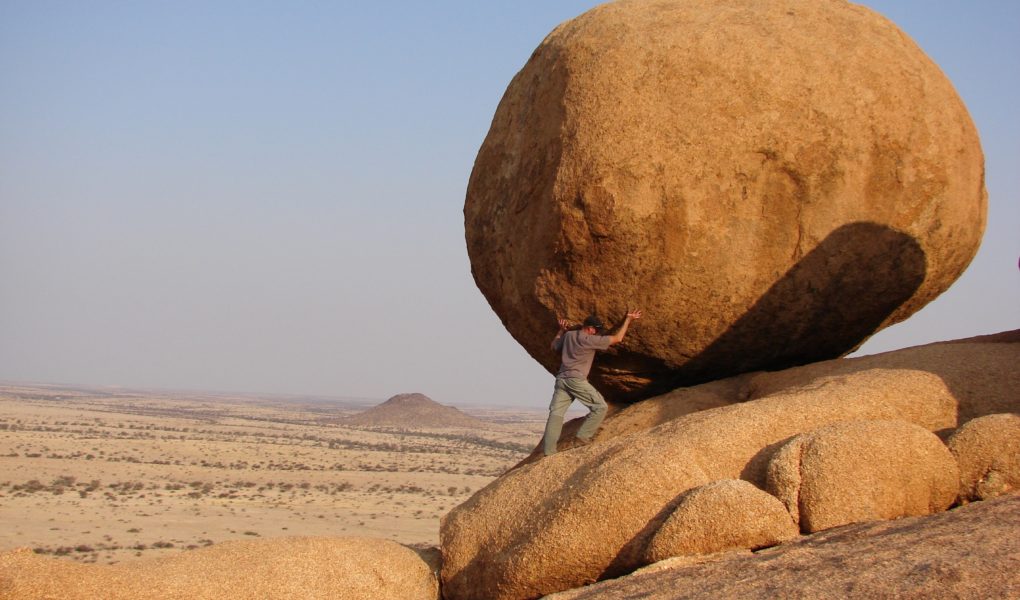Once upon a time, in a family night discussion on how the Lord can turn weakness into strength, I informed my young children that we all had weaknesses, even me. My son, a little incredulous at that statement said, “You, Mom? What?” I smiled as he thought a moment, then he answered his own question…”Oooh! Basketball! And football!…And…”
Never before nor since has anyone been surprised that I have weaknesses. Ironically, there is nothing quite like mothering to make our weaknesses readily apparent (especially to ourselves!) It is challenging, frustrating, grinding work at times, and we see with great clarity our faults in the daily mistakes we make. My son’s comment showed me that day that he, at least, wasn’t quite as aware of my weaknesses (although he nailed it on the head with his recognition of my weakness in all ball related sports.) In his youth and innocence, he saw me as someone strong–someone who cared for him and solved problems and fixed hurts and nourished and nurtured.
We tend sometimes to magnify our shortcomings and downplay our successes. The truth, of course, is that we are a combination of those things; some days and situations are better and some are worse. A more fair (and healthy) view of ourselves would acknowledge both. The Lord tells us that He ‘gives [us] weakness that [we] may be humble,’ (Ether 12:27) hoping that humility will lead us to seek Him and His strength, not that we will constantly demean ourselves about them.
The glorious and beautiful promise of this verse of scripture is that if we come to Him humbly and faithfully in our weakness, over and over again, He will, over time, ‘make weak things become strong.’ His grace and His strength are sufficient to make even me, with all of my glaring faults, strong–much more like the mom my innocent son saw in me, than the mom I see in myself. I find hope in knowing that my weakness is not a surprise to the Savior. That His invitation is to come and bring it ALL to Him–the good, the bad and the ugly–and He will give His strength and His power to me to make me better than I was before.
I, and we all, can do and become better. That doesn’t mean we can’t acknowledge and celebrate our successes or feel good about the progress we have made. As Elder Jeffrey R. Holland said, “…we are [God’s] spiritual sons and daughters with divine potential to become as He is…With a willingness to repent and a desire for increased righteousness always in our hearts, I would hope we could pursue personal improvement in a way that doesn’t include getting ulcers or anorexia, feeling depressed or demolishing our self-esteem…Every one of us aspires to a more Christlike life than we often succeed in living. If we admit that honestly and are trying to improve, we are not hypocrites; we are human. May we refuse to let our own mortal follies, and the inevitable shortcomings of even the best men and women around us, make us cynical about the truths of the gospel, the truthfulness of the Church, our hope for our future, or the possibility of godliness. If we persevere, then somewhere in eternity our refinement will be finished and complete—which is the New Testament meaning of perfection. (“Be Ye Therefore Perfect–Eventually” Ensign, November 2017)
My son is much older now and has become aware of the many additional weaknesses I have as a mother and as a person. What he may not see, however, is the progress I’ve made and the fact that I’m better in some ways now than I was when we first had that lesson. He probably doesn’t know (since he isn’t a parent yet) that I have agonized over my mistakes in parenting and prayed for the Savior’s grace to cover my weakness so that my children would not be harmed by my lack. He has sensed his own weakness, though, and can relate to those feelings in some degree. What a hopeful thought it is, that we can all be made strong in Him who has no weakness, and that His strength and power are more than enough to help us grow and progress until we are like Him.





